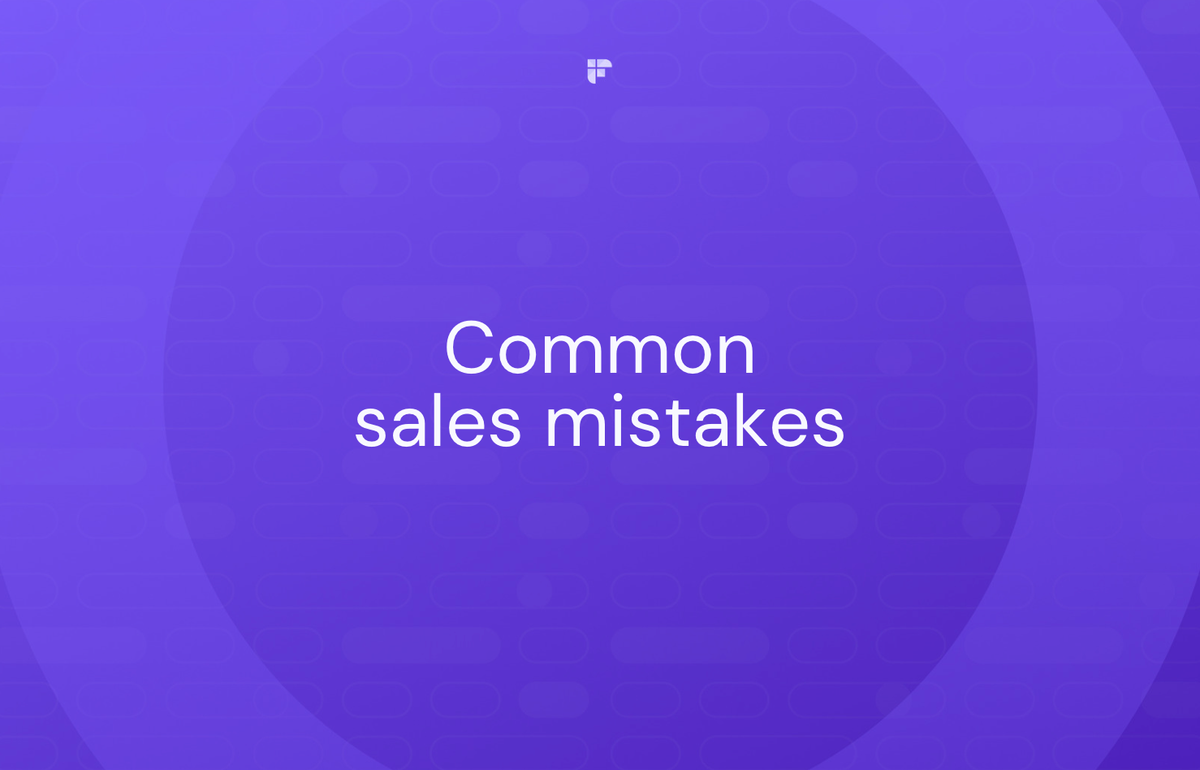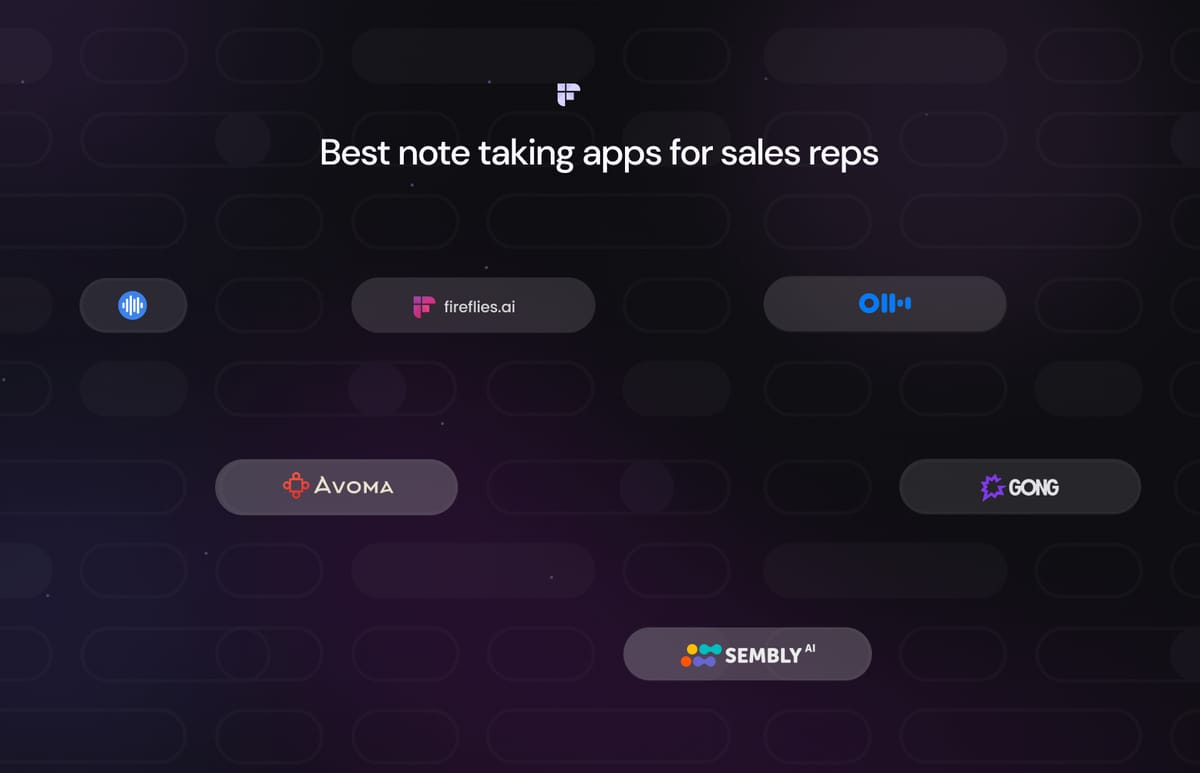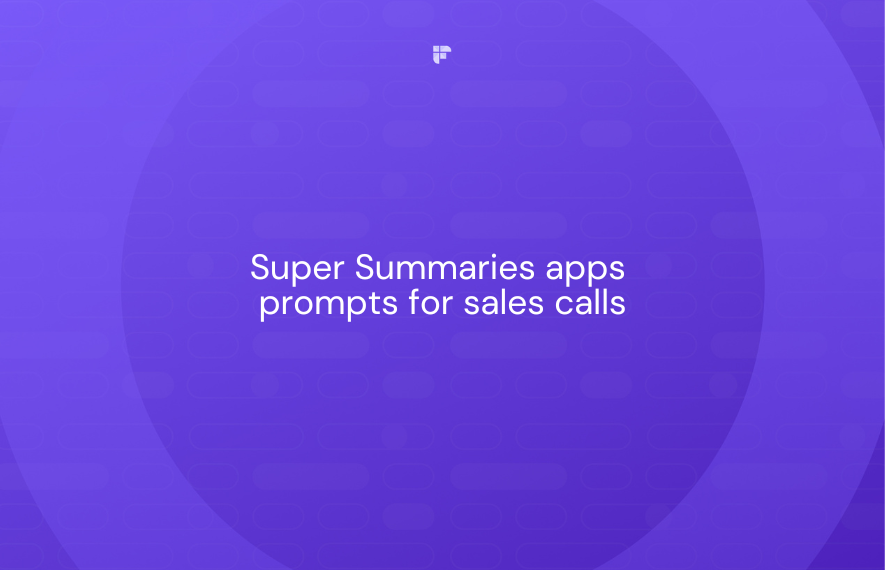You may have a sales team of brilliant reps with extensive experience and caliber. But how can you ensure you're making the most of these indispensable resources?
While these reps excel at selling, how adept are they at selling your specific product?
Everyone on your team, whether new hires or seasoned reps, needs to be on the same page.
What you need is a sales playbook—a comprehensive resource providing tools and information essential for successful strategy execution. With a sales playbook in place, your team operates from a unified approach, equipped to navigate any selling scenario with precision.

What is a sales playbook?

A sales playbook will be your guide for best practices for your sales team. It's essentially a manual for effectively selling products or services, covering everything from prospecting to pitching. This resource includes sales scripts, guides, buyer personas, and insights into company goals and key performance indicators (KPIs).
A sales playbook houses various sales plays—step-by-step strategies tailored to specific situations, products, or buyer personas. Having sales plays for each stage in the sales pipeline ensures that reps are well-prepared for any scenario they may encounter during the conversion process.

What is the importance of a sales playbook?
A sales playbook forms the backbone of effective sales training, consolidating processes, assets, tactics, and knowledge essentials for your sales team's success. It can benefit you in many ways:
- It fosters unity by implementing a standardized approach based on proven best practices, instilling confidence and team cohesion.
- It streamlines the sales plays for new products, leveraging existing practices with minor adjustments.
- In hiring and training, it becomes a comprehensive resource for new reps, reducing reliance on senior reps for answers.
- Existing reps benefit from time savings, as the playbook serves as a quick reference for details.
- A well-structured sales playbook ultimately enhances customer experiences by relying on proven practices tailored to their needs.

Let's go through 7 key components that you must include to create an effective Sales Playbook.
1. Company overview
In your sales playbook, start with a concise company overview for both veteran familiarity and new rep onboarding. Highlight your industry position, mission, and values.
Briefly outline your sales strategy's alignment with the overall business strategy and include an organizational chart with roles and responsibilities to offer context for effective collaboration within the company.
Cover key points in the company overview, including:
- A structured organization diagram.
- Department responsibilities for transparency.
- Points of contact for queries, ranging from feature requests to IT support.
- Specify contact details for each point of contact and provide backups for contingencies.
This streamlined overview ensures your sales team understands its role within the organization and encourages collaboration while leveraging company expertise.

2. Products and services
In equipping your sales team, a comprehensive product overview is key. Dig deep into your offerings, detailing key features, functionality, and integrations, and provide services such as onboarding, support, and training. Emphasize what sets your products apart, empowering reps to convey unique value propositions to potential buyers.
For companies with multiple products, offer individual overviews and illustrate how these products synergize. This knowledge not only enhances the understanding of your offerings but enables reps to pass on leads to other product lines.
Include insights into upcoming features, addressing potential objections, and showcasing your commitment to product evolution. Assign a team member for updates to accommodate changes in feature plans.
You should also provide pricing details to ensure your sales reps are well-versed in production costs and intended selling prices. This empowers them to craft compelling deals while maintaining profitability.

3. Buyer personas
To effectively market products, understanding your buyers is paramount. Craft detailed buyer personas based on research into sales statistics, providing valuable insights for targeted marketing efforts.

In the playbook, profile ideal prospects as 'personas' to guide reps in tailoring pitches to prospects' concerns and responsibilities.
Begin with basic demographics to identify your primary customer base, then delve into audience pain points. Address challenges and showcase how your products offer solutions.
For each persona, cover:
- Role
- Seniority
- Company Type
- Company size
- Internal challenges
- Personal drivers
Segment your audience further based on B2B or B2C distinctions, recognizing the motivations driving these customers.
4. Sales methodology/process
Selecting the right sales methodology is the cornerstone of an effective sales process, influencing your entire playbook. Explain why you chose a particular method and provide reps with actionable tips, from prospecting to post-sales follow-up.
- Lead prospecting: You’ll want to explain if you’d like them to use certain tools or if you have specific instructions for cold calling.
- Lead qualification: Processes should be outlined to ensure time isn't wasted on unproductive leads.
- Closing sales: Specify steps for upselling or cross-selling and guidelines for creating custom quotes.
- Post sales: Emphasize the importance of follow-up without being intrusive, setting clear guidelines for effective customer contact.
Unlike the methodology, the sales process outlines the stages a prospect undergoes, offering clear objectives and steps for reps. Map out these stages, defining milestones and roles to guide your team through a streamlined and successful sales journey.

5. Resources and sales enablement materials
In the sales playbook, ensure your powerful sales collateral translates into value by enabling easy access. Create a section listing assets tailored to specific circumstances, complete with links for instant access. This empowers reps to find what they need promptly, optimizing their efficiency.
Include a diverse range of assets organized by different sales stages, establishing a library of pre-made content. From product and service brochures to ROI calculators, buyer guides, and industry-specific materials, consider this a comprehensive database for sales support.
Covering voicemail scripts, social media content, and more, this section serves as a go-to resource for reps facing challenges or seeking additional support in a sale.

6. KPIs and goals
Inspire and guide your sales team by setting clear goals, fostering motivation, and outlining expectations. Prioritize data and key performance indicators (KPIs) in the onboarding process to ensure a focus on metrics and performance tracking.

Provide sales reps with a comprehensive view of their performance against targets, fostering self-awareness and accountability for each sales stage. This transparency also highlights individual contributions to the team's overall performance.
Consider measuring KPIs such as average profit margin, monthly sales growth, cost per lead, sales per rep, product performance, quote-to-close ratio, and average conversion time. Communicate the frequency of performance evaluations and the consequences of not meeting established goals.
By integrating goal-setting and robust performance tracking, you empower your sales team with the tools and motivation to excel in their roles.

7. Commission structure
For sales reps, understanding commission structures is crucial. In your playbook, set clear rules outlining the rewards for exceeding established quotas.
Begin by specifying the base salary as a foundational element. Provide illustrative examples to explain how bonuses operate. A key decision lies in whether bonuses are tied to the sales volume or the highest-grossing sales. Whatever you choose will shape the structure of the incentives.

Assembling the playbook
Assembling an effective sales playbook involves strategic planning. Use these tips to make your job easier.
Be open to feedback from the sales team
Leverage insights from your frontline warriors: the sales team. They bring valuable experience, knowing what works and what doesn't, including handling objections. Collaborate with them from the start to build a robust and collaborative playbook, fostering a stronger team.

Incorporate a structure to align sales and marketing teams
Aligning sales and marketing teams within the playbook enhances your company's messaging coherence, providing customers with a more compelling journey through the sales funnel.

Stick to your sales methodology
Your playbook becomes a bit disorganized without a set methodology guiding your processes. To keep your company on track, choose a specific sales methodology, such as SPIN selling, NEAT selling, Conceptual Selling, SNAP selling, etc., for a structured approach.
Train your sales reps
Before implementation, host training sessions for sales reps, ensuring they understand each playbook section. Encourage discussions to gather valuable insights and refine the playbook accordingly.

Keep updating the playbook
Regularly update the playbook to reflect changes in sales processes and team structures. Assign a marketing team member to oversee sales enablement assets, adding new assets and ensuring links are functional.

Make the playbook accessible
Make the playbook accessible through shared drives and include it in onboarding processes. Organize sections logically, provide a table of contents, and ensure user-friendly access.
Sales playbook template
Now that you know the essential components of a sales playbook, you can create one suitable for your work. Here is a sales playbook template to guide you in making an effective custom playbook for your team.
Company overview
In this section, we aim to provide sales representatives with a comprehensive understanding of the company, its objectives, and the pivotal role the sales team plays in attaining these goals.
General overview
- Company History
- Overview of Your Company's Offerings
- Industry Competitors and Landscape
Missions and values
- Core Pillars of Our Company
- Guidelines for Sales Representatives
- Representation in the Field by Sales Representatives
Strategy
- Overview of the sales strategies employed
- Alignment with the overall business strategy and objectives
Organizational chart
- Integration of Sales Reps into the Bigger Picture.
- Reporting Structure for Sales Reps.
- Overview of Company Leadership.

Products/Services
Begin with a general overview of offerings and then delve into the specifics of each product, addressing key questions. Enhance clarity by incorporating relevant imagery or product guides for a comprehensive understanding.
Product 1
- Explain how your product/service functions.
- Give the buyer reasons for why they would want/need your product/service.
- Provide pricing details.
Product 2
- Explain how your product/service functions.
- Give the buyer reasons for why they would want/need your product/service.
- Provide pricing details.
Product 3
- Explain how your product/service functions.
- Give the buyer reasons for why they would want/need your product/service.
- Provide pricing details.
Buyer personas
Define your target audience by outlining the characteristics of your ideal B2B and B2C buyers.
Persona #1 : B2B
- Age
- Gender
- Location
- Salary
- Profession
- Pain points
- Solutions
- Common objections
- Marketing messaging
Persona #2 : B2C
- Age
- Gender
- Location
- Salary
- Profession
- Pain points
- Solutions
- Common objections
- Marketing messaging
Sales methodology
Provide a concise overview of your sales methodology, followed by clear instructions on the functioning of each step in the sales process.
1. Lead prospecting
- Guide Reps on effective lead prospecting strategies.
- List recommended tools/resources with corresponding login details.
- Provide insights on tailoring approaches based on different buyer personas and products.
2. Lead qualification
- Provide Reps guidelines for effective lead qualification.
- List recommended tools/resources with corresponding login details.
- Provide insights on tailoring approaches based on different buyer personas and products.
3. Closing sales
- Guide Reps on effective sales closing strategies.
- Identification of special opportunities for cross-selling or upselling.
- List recommended tools/resources with corresponding login details.
- Provide insights on tailoring approaches based on different buyer personas and products.
4. Post sales
- Provide strategies for effective post-sales communication and customer engagement.
- List recommended tools/resources with corresponding login details.
- Provide insights on tailoring approaches based on different buyer personas and products.
Resources and sales enablement materials
Marketing and Messaging Materials for the Sales Process:
- Scripts for effective communication
- Social content guidelines
- Demo videos to showcase products/services
- Objection responses for handling common challenges
- Case studies highlighting success stories
- Press releases for additional context and credibility.
Key Performance Indicators (KPIs) and goals
Outline the objectives that sales representatives should aim for, ensuring they are quantifiable and precise. Examples encompass:
- Average profit margin
- Monthly sales growth
- Average cost per lead
- Sales per rep
- Product performance
- Quote-to-close ratio
- Average conversion time
Commission structure
Detail the incentives for sales representatives based on their successful deals. Provide a chart that explains the commission breakdown.
Sale Amount | 5% commission on each sale | Total compensation |
$ XXX | $ X | $ XXXX |
$ XXXX | $ XX | $ XXXXX |
Streamline sales plays with AI
To make your sales processes and playbook implementation more efficient, leverage all that an AI assistant has to offer.
Fireflies.ai can prove to be an indispensable ally for you and your team.

Functioning as a comprehensive conversational intelligence tool, Fireflies extends beyond mere note-taking. Its multifaceted role involves capturing vital insights, strategies, and components discussed in sales meetings, tracking topics, and providing actionable analytics.
Fireflies.ai doesn't just document; it lets you create custom summaries to extract only relevant meeting insights needed to close a deal. Transforming sales conversations into organized summaries equips sales teams with a strategic advantage, enhancing efficiency and decision-making in the sales pipeline.
Upgrade your sales plays with Fireflies.ai!
Leverage the intelligence of Fireflies to optimize your sales playbook.
Try Fireflies for free!








